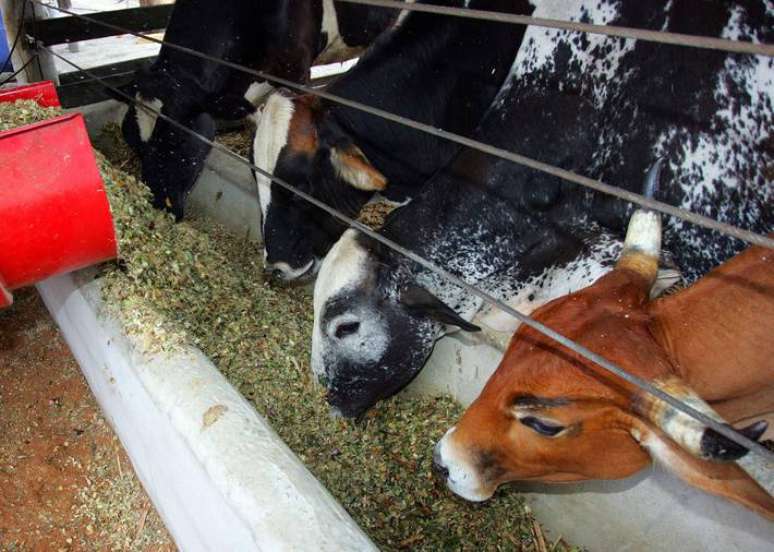Specialists assess, however, that exports tend to recover after the release of shipments, with the exception of the Brazilian producer, and believe in a rapid recovery of trade with the Asian giant
BRASÍLIA – The weight of consumption Chinese in the market of beef The Brazilian market becomes more evident when the daily impact of the stoppage in the shipment of these products to the Asian giant occurs. Estimates indicate that Brazil should stop earning about US$ 17 million a day with the temporary closure of trade in this product, due to the confirmed case of mad cow disease in an animal in Pará.
Estimates by the Brazilian Association for Foreign Trade (AEB) indicate a market that moves around 500 million dollars a month. However, for José Augusto de Castro, president of AEB, despite the immediate financial impact, the trend is to resume exports soon, with the exception of the Brazilian producer, given the size of Chinese demand.
“I don’t think we will lose the market. What should happen is only the postponement of production shipments, or the transfer of meat to other countries, until everything is back to normal,” said the expert.
Castro welcomed the government’s swift action in taking a stand on the mad cow case identified on a small farm in Marabá, Pará. “Brazil has followed all the protocols, it has moved forward. We believe that the situation must be resolved quickly, in about 30 days, since it is an atypical case, and not a classic contamination”, he commented.
The expert also rules out the possibility that the United States, which is the second largest buyer of Brazilian meat, would adopt a suspension measure like that of China. “I find it very difficult for the United States to adhere to this. More than our buyers, they are our main competitors in the meat market in China. Any such attitude would be seen as a possible retaliation against Brazil,” he commented.
Strict sanitary protocol
Insper global agribusiness professor Marcos Sawaya Jank says that the health protocol adopted by Brazil with China is the only one in the world that imposes a cut in exports in situations of atypical cases of mad cow disease.
The atypical case is that which concerns a single animal, not the contamination of a flock. In the case of Marabá, the animal, which has already been slaughtered and, according to the analyzes carried out, has developed a degenerative brain disease, i.e. without having contact or contamination with other animals.
The protocol between Brazil and China that led to the blocking of national beef exports began in June 2015, when another atypical case of mad cow disease appeared in the country. It was then that Brazil joined the rule with what is its largest market.
“It can be seen that Brazil has never recorded a case of classic mad cow contamination. This has happened in some European countries. Here there have always been some isolated cases, without implying contamination. It is the situation of an elderly animal which undergoes a mutation, but transmits nothing,” says Jank.
The bull slaughtered with the disease was nine years old. Even if healthy, there was no chance of the animal being exported to China, as the country only buys animals up to 30 months old, i.e. two and a half years.
“I believe that, with President Lula’s trip to China, scheduled for the end of March, Brazil has a great opportunity to review this rule, because the momentum of bilateral relations is excellent. All factors combine to review this”, says Jank. “Obviously there has to be transparency and real scrutiny, but for situations that really require this kind of measure.”
As shown the Stadiumor The Brazilian government seeks to speed up health protocols to regulate beef exports to China in front of President Luiz Inacio Lula da Silva undertake a bilateral meeting with Chinese President Xi Jinping, scheduled for March 28.
In addition to the export freeze in 2015, there were atypical cases of mad cow disease in Brazil in 2019 and 2021, when the shutdown lasted nearly four months.
“I believe that this time we should have a quick solution, because the relations between the countries are very good. We no longer have the frictions we saw in the last government, when there was a certain diplomatic confrontation and little will to resolve it, “he comments Jank.
Alessandro Azzoni, deliberative adviser to the Commercial Association of São Paulo (ACSP), assesses that Brazil has internationally recognized livestock control and that this should reduce downtime. “The incidence of a single case in Brazil means that the protocol is strictly followed, as in 2021, when the country stopped exporting meat to China for 100 days, between September and October,” he commented. “At the time, there were only two cases reported in Mato Grosso and Minas Gerais.”
Alcides Torres, market analyst at Scot Consultoria, reiterates that Brazil is considered a very low risk country when it comes to the disease. “Our flock is grass-fed, pasture-raised. Even when it is confined, it receives no residues of animal origin. It is forbidden to use, for example, blood meal, meat meal and bone meal,” he comments. “All of this is prohibited and there is also a severe penalty if you don’t respect these rules.”
Torres also believes in a quick response from China to rectify the situation. If it continues, the destination of the meat produced could be consumed, in part, by the national market. “If, eventually, this rolls out, some of that meat goes to the domestic market and we could also see a price drop in the wholesale market, which could be passed on to the final consumers, but this is mere speculation,” he assesses, believing in a short-term export recovery.
gigantic market
China is the largest buyer of Brazilian meat, accounting for 57% of exports of the national product in January, with transactions worth $485 million. The second largest consumer is the United States, accounting for 9.4 percent of exports and transactions worth $79 million in January, according to data from the Ministry of Development, Industry, Commerce and Services (MDIC).
The growth potential of the Chinese market is exponential, experts point out, given that today the annual consumption of beef in China is 5 kilos per person – while in Brazil this average is 25 kilos per person.
Source: Terra
Rose James is a Gossipify movie and series reviewer known for her in-depth analysis and unique perspective on the latest releases. With a background in film studies, she provides engaging and informative reviews, and keeps readers up to date with industry trends and emerging talents.


![Tomorrow belongs to us: What awaits you on Tuesday, July 15, 1987, July 15, 2025 [SPOILERS] Tomorrow belongs to us: What awaits you on Tuesday, July 15, 1987, July 15, 2025 [SPOILERS]](https://fr.web.img3.acsta.net/img/ec/5b/ec5be625b7977834b0470366ee256862.jpg)





